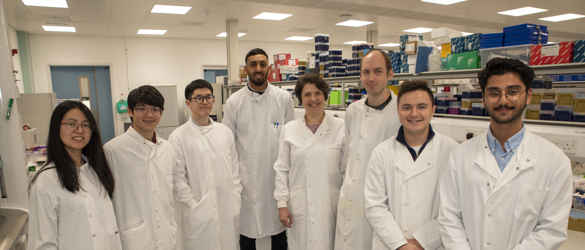Investigating the genetic roots of hydroxychloroquine (HCQ) retinopathy

Professor Susan Downes, Oxford University - £21,380
This project aims to identify the gene that causes some people who are prescribed hydroxychloroquine (HCQ) to develop retinopathy after long term use.
What is the problem?
Hydroxychloroquine (HCQ) is a widely prescribed anti-inflammatory drug which, in some long-term users, can cause permanent blindness. To protect patients from this terrible outcome, the NHS recommends screening. This both expensive and time-consuming process can only identify damage once the onset of retinopathy is underway.
What are they doing?
There is believed to be a genetic susceptibility in some people to developing retinopathy after long-term use of HCQ. Professor Downes and her team intend to identify the gene(s) in question. The genome of 110 individuals who have experienced permanent vision loss as a result of HCQ will be compared to 330 long-term users who have not. This will identify what causes this pre-disposition. With extensive examination of the genes involved it is hoped that the risk of retinopathy in all HCQ patients will be established.
How can this help?
People with this gene will no longer be prescribed HCQ, thereby preventing them from the risk of retinopathy. HCQ will continue to be prescribed to people with little or no risk of sight loss, with some being supported by screening.
See our other projects
Since 1987 the Macular Society has invested around £10 million in over 100 research projects.
Explore more research
Beating macular disease through funding medical research and improving the lives of those living with macular disease.
Get the latest research news from the Macular Society
To hear about life-changing research and treatments, subscribe to our monthly enewsletter today. Together we can Beat Macular Disease.
Sign up to our free email newsletter



